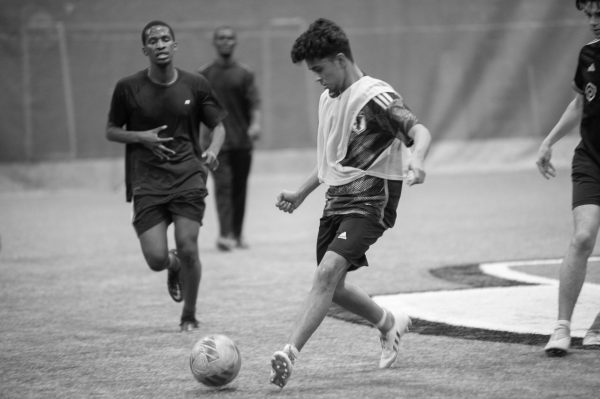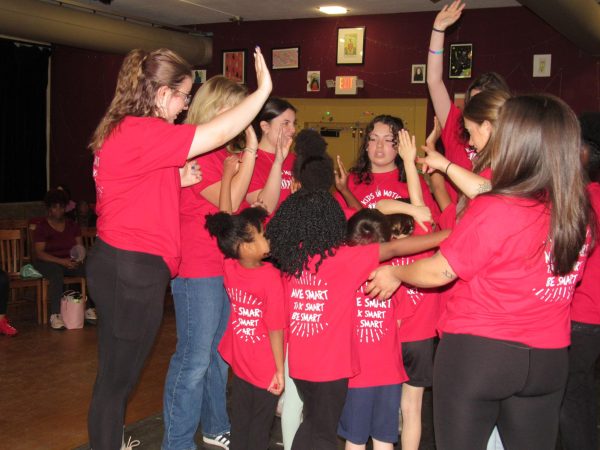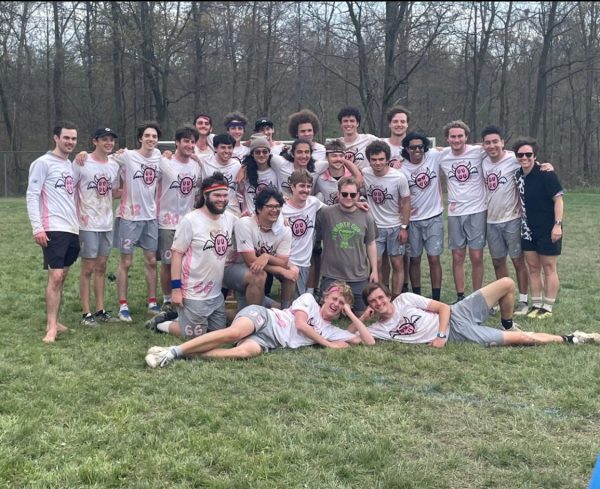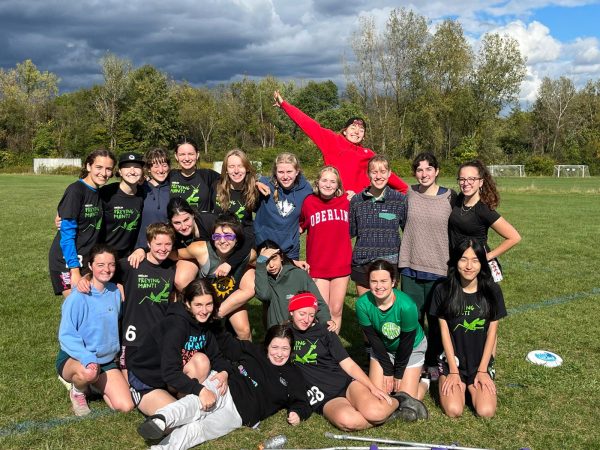Club Sport Teams Plan Antiracism Programming in Response to Criticism
Some of Oberlin’s club sport teams are working to address racism in their communities and create safe spaces for Black, Indigenous, and students of color — particularly for Black athletes on predominantly white teams. These efforts come after nationwide Black Lives Matter protests and conversations surrounding racism rejuvenating mainstream focus on racial injustice.
Zoe Hecht, College fourth-year and captain of the Oberlin Preying Manti women and trans Ultimate Frisbee team, has worked this past summer with her co-captains and the College to prepare for conversations surrounding race and anti-racism work.
“We’re working with an administrator from the College to learn effective facilitation skills and will definitely be having these conversations moving forward, starting this summer and moving into the school year and beyond,” Hecht wrote in an email to the Review.
The Preying Manti have been active on social media this summer to initiate anti-racism work and devise projects to create a more equitable team. Such projects include mandatory biweekly discussions relating to race in the Ultimate community; semesterly power, privilege, and oppression workshops with the Multicultural Resource Center; and reaching out within the “alumni network to organize larger conversations about race and racism in our country, our sport, and our team,” according to the Preying Manti Instagram page.
Hecht admitted that the Preying Manti have fallen short in previous years. The team was recently criticized on Instagram for failing to take action against racism within the group.
“We haven’t done a very good job of this in the past, it’s something we’re really working on,” she wrote.
College fourth-year and co-captain of club soccer Esme Rubinstein shared similar sentiments. She stated that while the club soccer team has had many conversations regarding sexism as a co-ed team, it needs to further address racism and create safe spaces for BIPOC.
“Both Jonas [Wanstok] and I are new this year to being captains, but amongst ourselves and with advice from the previous two captains we have started to talk about past ways in which anti-Blackness appears within club soccer as well as future ideas about how to start dialogue within the space,” Rubinstein wrote in an email to the Review. “In the past, club soccer has always tried to be pretty vigilant about facilitating conversations about gender, but we definitely have lacked when it comes to creating a safe space for BIPOC players as well as talking about racism within sports.”
Rubinstein believes that an important part of addressing the BLM movement and racism within sports is to integrate these conversations into the club culture, beginning with captains taking the time to educate themselves on the issue.
“We need to work more on how we want to go about these conversations and how we want to take advantage of the College’s resources,” she wrote. “Personally, I plan to attend BLM workshops the College offers in order to make sure I can be as best prepared, especially since I am in a leadership position.”
While varsity athletes and staff are required to participate in diversity training — such as One Love and specialized Preventing and Responding to Sexual Misconduct workshops — similar programming and requirements do not exist for club sports. The Club Sports Council has worked with PRSM in the past to run workshops for Preying Manti athletes, but these trainings have not included discussions regarding racism in the club sports community.
Misconduct can be formally reported to the Office of Equity, Diversity, and Inclusion. Captains serve an important role in the reporting process, as athletes may turn to them for support when deciding how to handle situations relating to identity.
“The current process [for club soccer] is for teammates to come to the captains with the issue and then captains are to handle it through actions, depending on what the reporting teammate is comfortable with and the severity of the incident,” Rubinstein wrote. “We want to make this process easier for BIPOC players, so we will need to work to build a supportive team environment and accountability. We want to make sure that not only do BIPOC feel safe within club soccer but also [are] a part of the conversation/decision making process when issues come up.”
However, the process of reporting discrimination relating to race, gender, sexuality, or other identities varies by team, and the College’s role is still unclear for some captains. College third-year and co-captain of the cycling team Joaquim Stevenson-Rodriguez noted that the reporting process isn’t familiar to all captains.
“Honestly, I’m not sure of a reporting hierarchy for these issues within club sports,” he said. “I know that we have an Office of Equity, Diversity, and Inclusion, but I’ve never been and don’t know what their proceedings look like.”
For students who prefer not to report discrimination through the Office of Equity, Diversity, and Inclusion, The Office of Ombudsperson and the Yeworkwha Belachew Center for Dialogue also provide confidential conflict resolution resources including mediation and dialogue facilitation.
For Stevenson-Rodriguez, the recent spotlight on BLM has revealed the shortcomings of some club athletes. As a person of color leading a predominantly white team, he was disappointed to see his teammate’s recent silence on issues relating to racism.
“I told one of my teammates to get his social media presence up,” he said. “I obliquely asked two more what they’ve been up to, to try and see why they haven’t had much to say or do about the state of Black people in America. Their answers didn’t indicate they were doing much.”
Rubinstein knows that these initiatives will require ongoing dialogue and active participation from players. She hopes that continuous, critical discussions surrounding race in sports will improve player accountability moving forward.
“Our hope is that by having discussions about racism be a regular recurring part of our club, all members will be aware of the priorities of the team and held accountable,” she wrote.
Though sports will look different this year given the College’s COVID-19 guidelines, some captains plan to engage with BLM and create safer spaces for BIPOC athletes within their communities.






